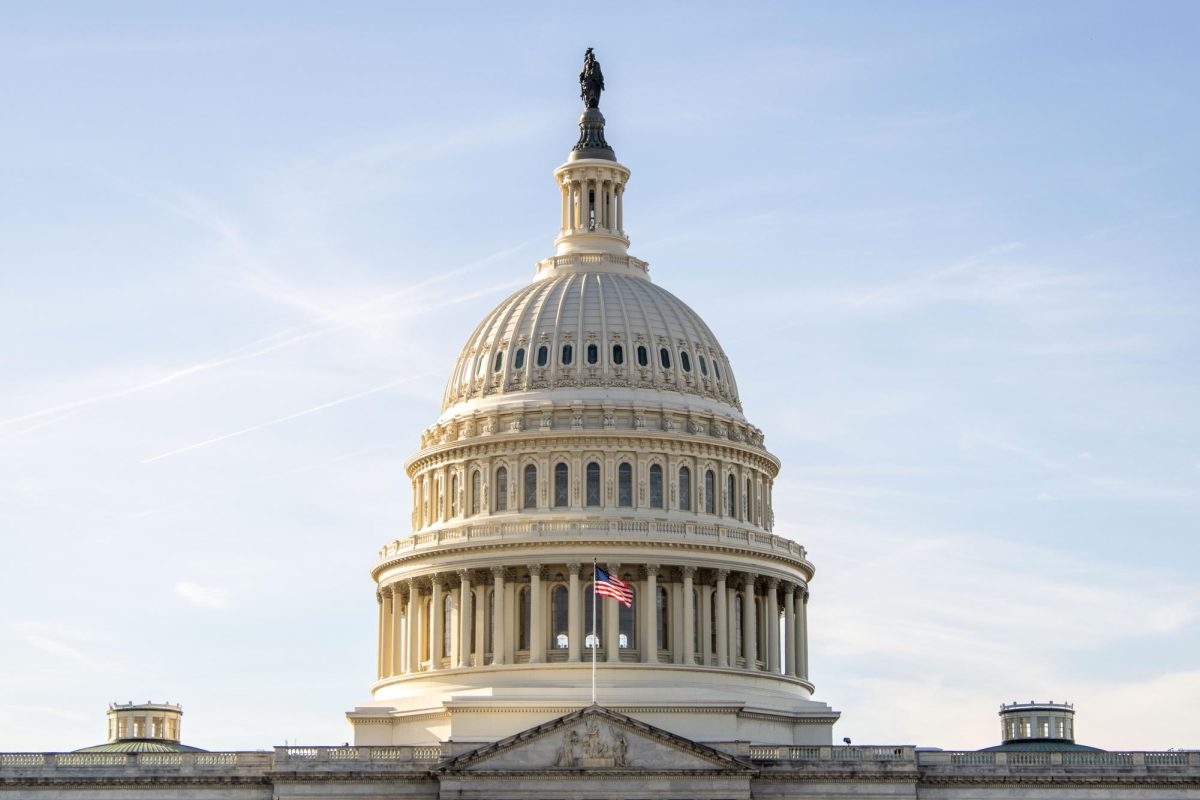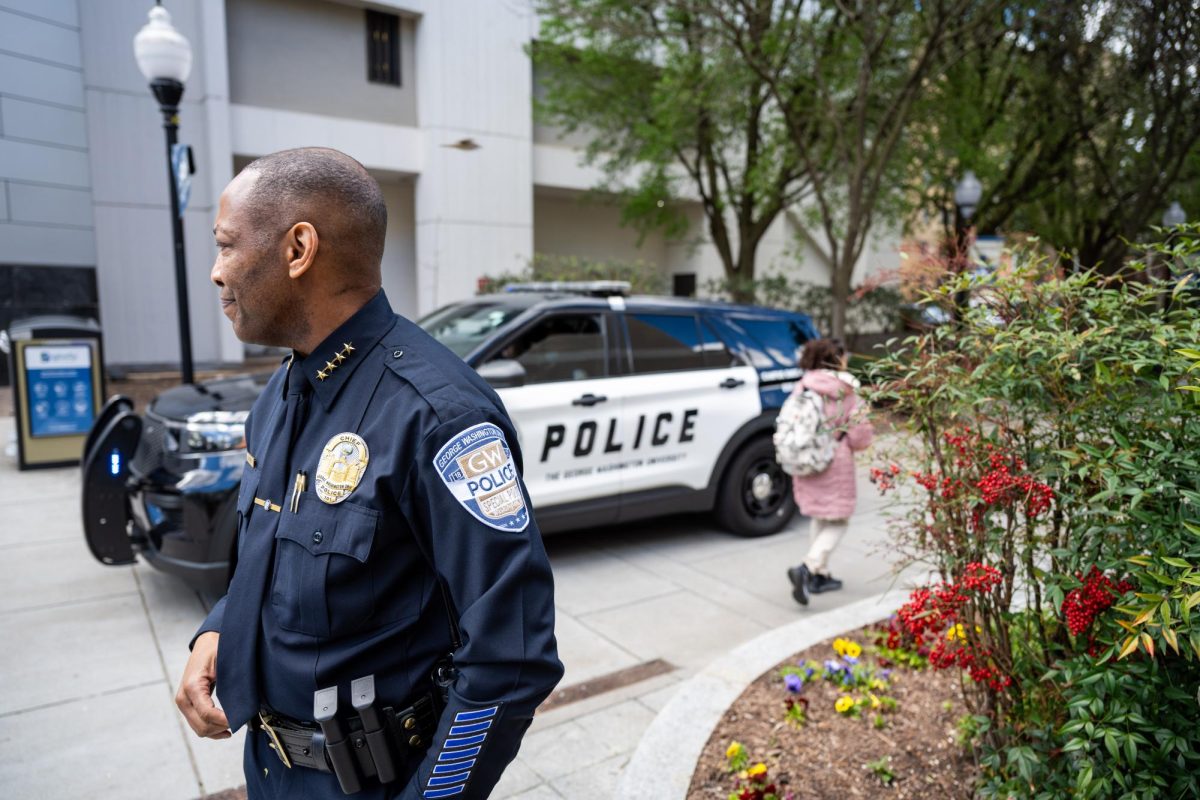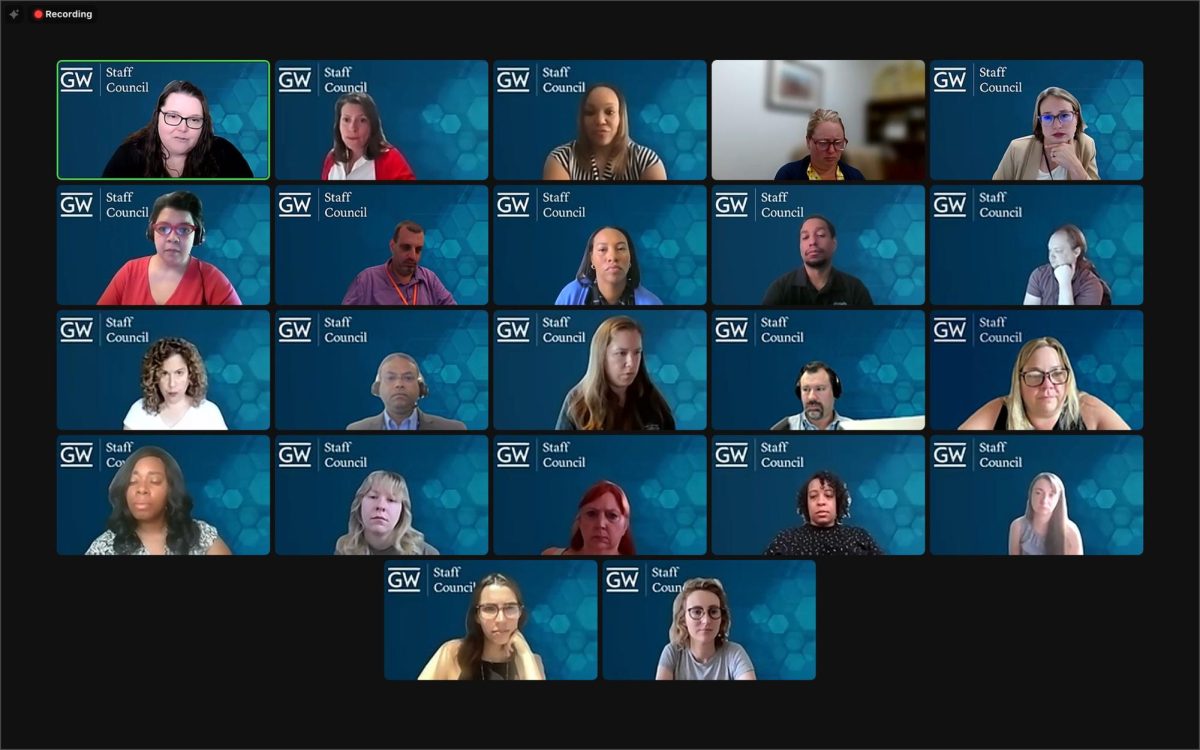A prestigious academic organization that GW is a member of criticized a partisan bill introduced in a House committee last month that calls on universities to disclose free speech policies and student organization funding. Free speech experts said the bill is unlikely to pass but signals a concerning government interest in controlling expression on college campuses.
The House Committee on Education and the Workforce approved the Respecting the First Amendment on Campus Act (24-14), which requests universities to adopt the Chicago free speech principles, a free speech code originating from the University of Chicago, and disclose their speech policies and student organization funding. The Association of American Universities, an organization of research universities that GW gained membership to last year, released a statement stating their opposition to the bill because of its potential to restrict free speech if passed and lack of input from higher education leaders.
University President Ellen Granberg said at a Faculty Senate meeting in November that GW uses the University of Chicago’s free speech principles.
Reps. Brandon Williams (R-NY) and Virginia Foxx (R-NC) introduced the legislation, alongside eight Republican co-sponsors, last month as one of three bills aimed at amending the Higher Education Act of 1965, which provided more federal financial assistance and resources for universities. Williams and Foxx said in a release that the bill would prevent universities from promoting “illiberalism” and hold higher education leaders accountable to their speech policies.
The bill is largely targeted at public schools that receive federal funds, but private schools like GW would also have to divulge their free speech policies. If schools do not disclose their policies, they could have their federal aid rescinded under threat of revoking federal financial aid. The bill also would require schools to allow single-sex student organizations.
“The state of postsecondary education is in complete disarray,” the two lawmakers said in the release. “We’ve seen countless examples of institutions leveraging taxpayers’ dollars to fan the flames of illiberalism, intolerance, and radical ideology amongst students and faculty.”
Campus-wide concerns about free speech have been prevalent at GW since the outbreak of the war in Gaza. Officials suspended Students for Justice in Palestine in November after four of its members projected anti-Israel and anti-GW messages on Gelman Library due to their violation of Gelman use policies and noncompliance policies. Faculty senators also passed a resolution last month urging administrators to involve GW community members in creating academic freedom policies.
Officials declined to comment on their thoughts on the bill. Granberg and Provost Chris Bracey said in January that they are reviewing the speech provisions of the Code of Student Conduct to ensure harmony with other University regulations.
Free speech experts said the potential passage of the bill is not of concern to higher education leaders but shows a growing lack of trust between the government and higher education.
Geoffrey Stone, the chair of the Committee on Freedom of Expression at the University of Chicago and a professor of law, said a federal attempt to request all colleges to adopt the Chicago principles would violate their right to academic freedom.
“As much as I believe that The Chicago Principles reflect a fundamentally important policy for universities, I do not for a moment think it appropriate for the federal government to compel universities to adopt the policy,” Stone said in an email.
He said in November that the Chicago principles clarify that universities should allow community members to express themselves, even if their ideas are offensive. He said the mission of higher education is to explore different ideas, which has allowed formerly controversial subjects, like same-sex marriage and women in the law profession, to become more acceptable nationally.
“The only reason we changed our minds about these things is because we have talked about, thought about and learned about things and understood that the beliefs that we had were not correct,” Stone said in November.
Frederick Lawrence, a distinguished lecturer at Georgetown University Law School and the former dean of GW Law, said the legislation is a “mistaken approach” to protecting free speech on college campuses because one free speech policy cannot apply to all types of universities.
“The genius of our higher education system is that it has incredible diversity of schools of size, history, mission, faith-based schools, nonsectarian schools, big, small, north, south, east, west, young, old, technology-driven schools, liberal arts schools,” Lawrence said. “Why would you think that a single government-imposed mission would be the best way to achieve this?”
He said private universities have the freedom to create their speech policies and the bill would impose a framework for expression that would not effectively protect free speech at every school. He said, for example, Gelman Library can prohibit some expression in its entrance and exit area because students have no choice but to pass through the area.
He added that he is not worried about the bill becoming law, but is concerned that lawmakers are interested in regulating free speech in higher education because it indicates distrust between universities and the government.
“The proper concern is that the very fact that this is being discussed at a serious level in the two branches of Congress means this is an issue that will continue to occupy us and probably will be an issue through the 2024 congressional and presidential election,” Lawrence said.
Donald Downs, a creator of the Princeton Principles for a Campus Culture of Free Inquiry and a professor emeritus of political science at the University of Wisconsin-Madison, said the bill requires the assignment of faculty advisers to student groups which he said violates free speech because it “compels” faculty to associate with ideas they may not be comfortable with. He said assigning faculty advisers is generally done to ensure student groups gain equal funding from their universities.
“They try to deal with that in the bill by saying, ‘Well, if a faculty member is reluctant, he or she need only to deal with the purely administrative aspects of the group, not their ideas,’ and I find that they’re still helping them,” Downs said. “I don’t buy that as a distinction that should hold up.”
Downs said the introduction of the bill is a reflection of the growing “distrust” of American institutions and higher education. He said universities are “under the microscope,” especially since Oct. 7, when Hamas launched an attack on Israel that sparked an Israeli counterattack in Gaza, but it is difficult to distinguish how much of the criticism about universities’ response to the war is “merited” or “political.”
“In some ways, the fact that Republicans are on this side of it and Democrats are on the other is a mere reflection of the problem this bill is trying to address which is higher education itself,“ Downs said.
Thomas Healy, a professor of law at Seton Hall University who specializes in freedom of speech, said Congress “calls on” universities to adopt the Chicago principles instead of mandating them, so the bill is mainly a suggestion. He said there are multiple loose or strict interpretations due to the open-endedness of the Chicago principles, even if universities widely adopted them.
“At the end of the day, the principles represent an attitude toward speech, not a set of clear rules,” Healy said in an email.








